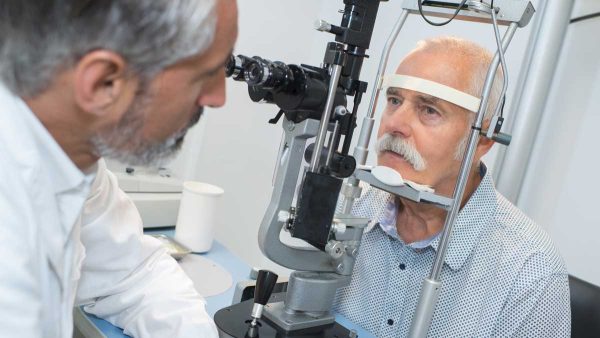Understanding cataracts: How long does it take to go blind?

Cataracts are a common age-related eye condition that affects millions of people worldwide. They occur when the eye’s natural lens becomes cloudy, leading to blurred vision and, in severe cases, visual impairment. If left untreated, cataracts can potentially cause blindness.
The stages of cataract development
Cataracts typically develop slowly over an extended period, and the speed of progression can vary from person to person.
They often begin as small, unnoticeable changes in vision and gradually worsen over time. The stages of cataract development include the early, intermediate, and advanced settings.
The timeframe for progression
The timeframe for cataract progression can vary widely, depending on various factors, including an individual’s overall health, lifestyle, and genetics. However, it is generally challenging to determine an exact timeline for cataracts to cause complete blindness.
Some individuals may experience a slow progression over several years, while others may develop rapidly advancing cataracts within a few months. It is crucial to note that cataracts do not lead to sudden or immediate blindness in most cases. Instead, vision deteriorates gradually over time.
Factors affecting cataract progression
Several factors can influence the development and progression of cataracts.
Age is a significant factor, as cataracts are primarily age-related, and the risk increases. However, cataracts can also occur in younger individuals due to other factors such as trauma, medications, or systemic diseases.
Lifestyle choices can play a role
Smoking, excessive alcohol consumption, prolonged sun exposure without protective eyewear, and poor nutrition may accelerate the formation and progression of cataracts.
People with certain medical conditions, such as diabetes or previous eye injuries, may experience a faster progression of cataracts.
Treatment options
Cataracts can be effectively treated through a surgical procedure known as cataract surgery.
This procedure involves removing and replacing the cloudy lens with an artificial intraocular lens (IOL). Cataract surgery is a safe and standard procedure that can significantly improve vision and quality of life.
It is essential to consult an eye care professional for accurate diagnosis and appropriate treatment options.
While cataracts have the potential to cause blindness if left untreated, the progression and timeline for each individual can vary.
Regular eye examinations are essential for early detection and monitoring of cataract development.
If you suspect you have cataracts or notice changes in your vision, it is recommended to consult an eye care professional. Early intervention and timely cataract surgery can prevent vision loss and restore clear vision, enabling individuals to enjoy life to the fullest.
